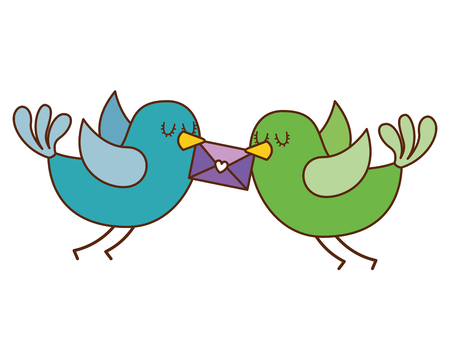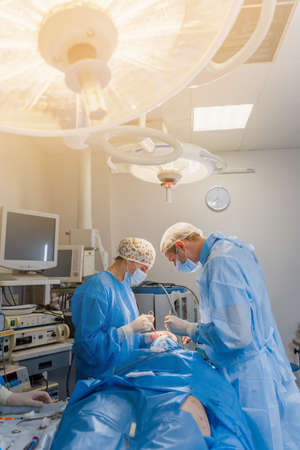Introduction to Avian Surgery in the UK
In recent years, bird ownership has become increasingly popular across the UK, with parrots, budgerigars, canaries, and even more exotic species finding homes as cherished companions. As more people welcome feathered friends into their lives, understanding the essentials of avian healthcare has never been more important. While routine veterinary care such as vaccinations, parasite control, and dietary advice form the backbone of keeping birds healthy, there are occasions when surgical intervention becomes necessary. Surgical procedures for birds in the UK range from minor interventions to complex operations, all tailored to address specific health concerns. Being informed about these common surgeries and knowing when they are required is vital for any responsible bird owner. In this article, we’ll explore how surgery fits into the broader context of avian healthcare, ensuring your bird receives the best possible care when it matters most.
Common Reasons for Surgical Intervention in Birds
Birds, both pets and rescued wild species in the UK, occasionally face medical conditions where surgical intervention becomes necessary. Understanding these common issues helps bird owners and carers respond promptly and appropriately to their feathered companions needs. In this section, we will explore the typical circumstances under which avian surgery is considered, highlighting examples frequently encountered in UK veterinary practice.
Frequent Conditions Requiring Surgery
There are several health problems that may necessitate surgical treatment for birds. The table below summarises some of the most common reasons:
| Condition | Description | Commonly Affected Species |
|---|---|---|
| Fractures | Broken wings or legs due to trauma such as collisions or falls; often requires pinning or splinting | Parrots, pigeons, garden birds |
| Egg Binding (Dystocia) | A female bird is unable to pass an egg, sometimes necessitating surgical removal if less invasive treatments fail | Budgerigars, canaries, cockatiels |
| Tumour Removal | The growth of benign or malignant lumps that may interfere with movement, breathing, or eating; excision is sometimes needed | Budgies, lovebirds, wild birds with injuries |
| Lacerations & Wounds | Deep cuts from accidents or predator attacks; surgery may be required to clean and close wounds properly | Pigeons, gulls, parrots |
| Foreign Body Removal | Swallowed objects or entanglements that cannot pass naturally; surgical retrieval might be essential for recovery | Cockatoos, wild corvids, urban birds |
The Importance of Prompt Action
If you notice signs such as limping, swelling, persistent straining (as seen with egg binding), visible lumps, or non-healing wounds in your bird, it is crucial to seek veterinary advice quickly. Birds have a remarkable ability to hide illness until it becomes severe—a trait inherited from their wild ancestors—so early detection and treatment are vital for successful outcomes.
Surgical Decisions in the UK Context
UK avian vets typically follow a thorough assessment process before recommending surgery. Diagnostic imaging (such as X-rays) and blood tests help determine whether a surgical approach is necessary or if conservative management might suffice. The decision also takes into account the birds species, age, overall health status, and the likely prognosis following surgery.

3. Frequently Performed Surgical Procedures
When it comes to avian care in the UK, there are several surgical procedures that vets commonly perform to ensure the wellbeing of our feathered friends. Understanding these operations can help bird owners recognise when surgery might be necessary and what to expect from the process.
Fracture Repair
One of the most frequent reasons for surgery in birds is the repair of broken bones. Due to their delicate structure and active nature, birds are prone to fractures, especially of the wings or legs. Veterinary surgeons in the UK use specialised techniques such as pinning, external fixation, or splinting to realign and stabilise the bone. Timely intervention is vital, as improper healing can lead to permanent disability or loss of flight.
Crop Surgery
The crop is a pouch in a bird’s throat used to store food temporarily. Crop issues, like impaction (blockage) or crop burns (often from overheated food), may require surgical attention. In these cases, a vet carefully opens the crop, removes any foreign material or damaged tissue, and sutures it closed. This procedure is delicate and requires prompt action to prevent further complications such as infection or starvation.
Removal of Foreign Bodies
Curious by nature, many pet birds inadvertently ingest objects that become lodged in their digestive tract or airways. When this happens, surgery may be required to remove the foreign body safely. Ingested items might include pieces of toys, household items, or unsuitable foods. The vet will perform an examination, often followed by imaging such as X-rays, before proceeding with removal under anaesthesia. Quick intervention reduces the risk of internal injuries and helps restore normal function.
Other Common Procedures
Besides these primary surgeries, UK avian vets also routinely carry out procedures like abscess drainage, tumour removal, and wound repair. Each case is assessed individually with welfare at the forefront, ensuring that all interventions are justified and carried out using best practice standards.
Conclusion
If you suspect your bird may need surgical intervention, it’s essential to consult an experienced avian vet promptly. Early assessment can make all the difference in recovery and quality of life for your pet.
4. When Is Surgery Necessary?
Determining whether surgery is the right course of action for a bird in the UK involves careful consideration and guidance from an avian veterinarian. While surgical intervention can be life-saving or essential to restore quality of life, it should not be the first resort. Instead, less invasive treatments are typically explored before surgery becomes a serious option.
Guidance for Deciding on Surgery
Choosing surgery for your bird is a significant decision. Avian vets follow a structured approach to ensure that all non-surgical options have been thoroughly considered. Here is an overview:
| Step | Description |
|---|---|
| Initial Assessment | Veterinarian conducts a thorough examination and may use diagnostic tools such as X-rays or blood tests. |
| Non-Surgical Treatments | Medications, dietary changes, or supportive care are trialled where appropriate. |
| Surgical Consideration | If conservative methods fail or if the condition is urgent, surgical options are discussed with the owner. |
| Owner Consent | The risks and benefits are clearly explained so owners can make an informed choice. |
Common Symptoms Prompting Surgical Intervention
Some symptoms and situations commonly lead vets to recommend surgery due to their severity or lack of response to other treatments:
- Lumps and Masses: Fast-growing or suspicious lumps may need removal to prevent malignancy.
- Severe Trauma: Open fractures, deep wounds, or injuries from accidents often require surgical repair.
- Egg Binding: In cases where medical management fails, surgery may be needed to remove retained eggs.
- Cloacal Prolapse: If manual correction does not work, surgical intervention can be necessary.
- Tumours: Benign or malignant growths may necessitate removal for the birds wellbeing.
- Foreign Body Ingestion: Birds that have swallowed objects often need surgery if these cannot pass naturally.
Considerations Before Opting for Surgery
Surgery always carries some risk, especially in birds due to their size and unique anatomy. British avian vets will discuss factors such as the bird’s age, species, overall health, and potential recovery time. The priority is always the welfare and long-term health of your feathered companion. By working closely with your vet and understanding when surgery is truly necessary, you can make confident choices that support your bird’s best interests.
5. Preparing Birds for Surgery
Ensuring your bird is properly prepared for surgery is crucial to their safety and recovery. Below, you’ll find practical advice tailored for UK bird owners to help your feathered companion before their surgical procedure.
Fasting Guidelines
Unlike dogs or cats, many birds should not be fasted for long periods due to their rapid metabolism. Your avian vet will advise you specifically—often, only a short fasting period (if any) is recommended, and water is typically allowed up until a few hours before surgery. Always follow your vet’s instructions carefully, as fasting needs can vary by species and health status.
Reducing Stress Before Surgery
Stress can negatively impact your bird’s health and make surgery riskier. To keep your bird calm:
- Maintain their usual routine as much as possible the day before surgery.
- Avoid loud noises and sudden changes in their environment.
- Handle your bird gently and only when necessary.
- If your bird enjoys certain calming activities (gentle talking or favourite music), use these to soothe them.
Safe Transportation to the Vet
Transporting your bird safely is essential. Use a secure, well-ventilated carrier lined with a towel for grip and comfort. Place familiar items, such as a favourite perch or toy, inside the carrier if space allows. In colder months in the UK, ensure the carrier is kept warm during transit but avoid overheating. Minimise travel time where possible and keep the journey smooth by securing the carrier in your vehicle.
Communicating with Your Vet
Before the day of surgery, confirm all preparation instructions with your avian vet. Share any concerns about your bird’s health or behaviour so that these can be addressed ahead of time. Providing a complete medical history and listing any medications or supplements your bird receives will help your vet plan safe anaesthesia and care.
Final Checks Before Surgery
On the morning of surgery, double-check that you have everything ready: transport carrier, relevant paperwork, emergency contacts, and any pre-surgical instructions from your vet. With thoughtful preparation, you’re giving your bird the best chance for a safe procedure and smooth recovery.
6. Aftercare and Recovery in the UK Environment
Post-operative care is a crucial step for any bird recovering from surgery, especially within the unique environmental conditions of the UK. Proper aftercare significantly increases the chances of a successful recovery and minimises the risk of complications. Here are some key considerations tailored to British avian patients and their carers.
Temperature and Local Climate Concerns
The UK’s often cool and damp climate can pose challenges for birds recovering from surgery. Maintaining a stable, warm indoor environment is essential, as many exotic or companion birds are sensitive to draughts and sudden temperature changes. Use heating pads or avian-safe heat lamps if needed, but always monitor closely to prevent overheating. Place the cage away from windows, radiators, or busy areas that might stress your bird or expose it to fluctuating temperatures.
Housing Options During Recovery
After surgery, birds require a quiet, comfortable space with limited movement to prevent injury or strain on surgical wounds. In the UK, consider using an indoor hospital cage or brooder box lined with soft, non-slip materials such as vet bed or kitchen roll—avoid loose substrates like sand or wood shavings, which may contaminate wounds. Ensure easy access to food and water and keep perches low to discourage climbing or jumping until your avian vet advises otherwise.
Nutrition and Hydration
Your bird’s appetite may decrease after surgery. Offer familiar foods and fresh water at all times. Some birds may benefit from hand-feeding or specialised recovery diets recommended by your avian vet. Monitor droppings closely for any changes in colour, consistency, or frequency, as these can indicate underlying problems.
The Importance of Aftercare Visits
Regular follow-up appointments with an experienced avian vet are vital in the UK setting. These visits allow for suture removal if necessary, wound inspections, and early detection of infection or delayed healing—issues which may arise more readily in Britain’s humid climate. Do not hesitate to contact your vet if you notice swelling, discharge, persistent lethargy, or any unusual behaviour.
Behavioural Monitoring
Keep a close eye on your bird’s activity levels and mood during recovery. Reduced vocalisation, reluctance to perch, or excessive preening at the surgical site could be signs of discomfort or complications. Provide gentle reassurance without excessive handling to minimise stress.
Support Networks in the UK
Finally, take advantage of local support resources such as The Parrot Society UK, RSPB advice lines, or avian veterinary practices specialising in exotics. These organisations offer valuable guidance on best practices for post-operative care within the British context.
7. Conclusion and Resources for Bird Owners
In summary, making informed and responsible decisions about surgical procedures for your bird is crucial to ensuring their long-term health and wellbeing. Surgery should never be undertaken lightly; it is essential to consider both the potential benefits and risks, as well as alternative treatments. Consulting with a qualified avian veterinarian is always the first step when you suspect your feathered companion may require medical intervention.
The Importance of Responsible Decision-Making
Avian surgery can address a variety of conditions, from trauma repair to removing growths or resolving egg binding. However, not every situation calls for an operation—sometimes less invasive approaches are best. As a bird owner in the UK, it’s your responsibility to weigh the advice of veterinary professionals and act in your pet’s best interest, always prioritising their comfort and recovery.
Finding Reputable Avian Vets in the UK
If you need specialist advice or surgical care for your bird, seek out a vet who is experienced in avian medicine. The Royal College of Veterinary Surgeons (RCVS) maintains a searchable database of registered veterinary practices, including those with avian expertise. Additionally, organisations such as the British Veterinary Zoological Society (BVZS) can help connect you to professionals specialising in exotic pets.
Further Support and Guidance
Beyond veterinary care, several UK-based charities and organisations offer support for bird owners facing difficult decisions regarding surgery. The RSPB, PDSA, and local wildlife rescue groups provide information on avian health, welfare, and post-operative care. Many also host forums or helplines for advice on daily bird care and recovery after procedures.
Your Role as a Caring Bird Owner
Ultimately, your vigilance, compassion, and willingness to seek expert guidance are the best tools to keep your bird healthy. If you ever feel uncertain about whether surgery is necessary for your pet, do not hesitate to consult multiple avian vets until you feel confident in your decision. By staying informed and connected with reputable resources, you give your bird the best chance at a happy, healthy life.


